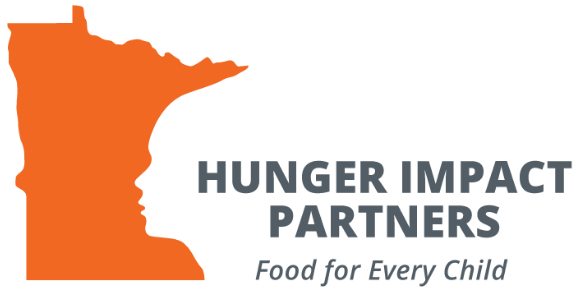Hunger Free KIDS Fund
Giving
Led by CEO Ellie Lucas, Hunger Impact Partners is a nonprofit that enables grassroots organizations, schools, child care centers, and youth programs to address child hunger in Minnesota. We support local programs tailored to individual communities focused on low-income neighborhoods across Minnesota.
We welcome donations to support our work, which also includes giving grants to increase meal access for children in low-income households.
Donate
1. Visit our page on GiveMN.org
CANDID
Candid provides comprehensive data on the social sector. It has given us its Platinum Seal of Transparency.

We are also eligible to receive grants through the Charities Aid Foundation America, a global grant making organization, and work with the American Online Giving Foundation, whose model ensures better record keeping and that donated funds are received in a reliable and timely fashion without the expensive and limiting processes around check donations.
Hunger Free KIDS Fund
Individuals and organizations contributing to the Hunger Free KIDS Fund help to ensure that healthy food reaches kids where they live, learn and play.
This effort offers an excellent way to motivate employee giving and inspire company-wide campaigns. Through the Fund, corporations, retailers, merchants, and cultural organizations can support meals for at-risk kids in their communities.
Download this information. (PDF)
Questions? E-mail info@hungerimpactpartners.org for details on the Hunger Free KIDS Fund.
Diversity and Inclusion statement
